
In the broader research infrastructure (RI) ecosystem, CLARIN is well positioned in the ESFRI cluster of Social Sciences and Humanities. The infrastructure also has a steering role in the Science Clusters, specifically in the Social Sciences and Humanities Open Cluster, and is actively contributing to the European Open Science Cloud (EOSC).
CLARIN ERIC is an active partner in the ERIC Forum, as well as European projects funded by the European Commission.
Pan-European Initiatives
ESFRI
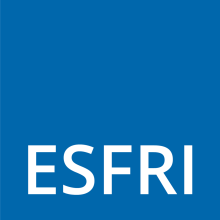
The European Strategy Forum on Research Infrastructures (ESFRI) was established in 2002, with a mandate from the EU Council. ESFRI is a strategic instrument to develop the scientific integration of Europe and to strengthen its international outreach. The Forum plays a key role in policy-making relevant for research infrastructures (RIs), and also facilitates multilateral initiatives to ensure better use and development of research infrastructures, at both EU and international levels.
distinguishes between six different domains; CLARIN is part of the ’Social and Cultural Innovation’ domain, along with CESSDA, DARIAH, ESS, and SHARE.
CLARIN is one of the research infrastructures that was selected for the European Research Infrastructures Roadmap by ESFRI. In 2016, CLARIN received the status of a Landmark on the ESFRI roadmap. In 2023, CLARIN, underwent the first round of ESFRI’s Landmark Monitoring, for which it received a positive report. In 2024, ESFRI published dedicated online portfolios for each research infrastructure on its website, as well as the ESFRI Landscape Analysis 2024.
ERIC Forum
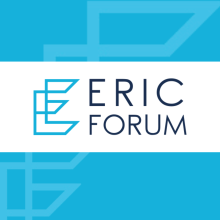
CLARIN is a member of the ERIC Forum initiative. This relatively informal, permanent body was formed in 2017 with the aim to strengthen the coordination and networking between European Research Infrastructure Consortiums (ERICs) and to interact effectively with the European Commission in order to achieve the full implementation of the ERIC regulation.
In 2019, the ERIC Forum Implementation Project (ERIC Forum 1) was set up by existing ERICs to reinforce the ERIC Forum through the organisation of specific meetings and thematic workshops on shared challenges. Now in its second stage (ERIC Forum 2), the project continues to work towards stronger coordination within the community and enhanced collaboration between partners. CLARIN actively participated in stage one, and continues to play a role in ERIC Forum 2.
Science Clusters/SSH Open Cluster
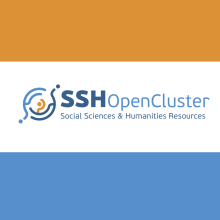
The leading RIs of the completed SSHOC project continue to collaborate under the umbrella of the SSH Open Cluster. As one of five Science Clusters, this framework provides a link between ESFRI and other RIs to the European Open Science Cloud (EOSC). The services developed by the clusters and other outcomes of the projects are cornerstones of the emerging EOSC fabric and support both disciplinary communities and multidisciplinary initiatives with harmonised models for access to data, tools, workflows and training.
CLARIN is part of the SSHOC Governing Board with 10 other infrastructures: CESSDA, DARIAH, ESS, E-RIHS, EHRI, GUIDE, GGP, RESILIENCE, OPERAS and SHARE.
EOSC - European Open Science Cloud
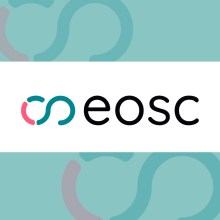
The European Open Science Cloud (EOSC) is a pan-European initiative designed to create a virtual environment for sharing and accessing research data across borders and scientific disciplines. The EOSC is recognised by the Council of the European Union among the 20 actions of the policy agenda 2022-2024 of the European Research Area (ERA) with the specific objective to deepen Open Science practices in Europe. It is also recognised as the ‘science, research and innovation data space’ which will be fully articulated with the other sectoral data spaces defined in the European strategy for data.
As a member of the EOSC Association and part of one of the five Science Clusters, CLARIN forms an integral part of the European Open Science Cloud (EOSC) initiative. CLARIN has been or is active in the following EOSC-related projects: OSCARS (2024-2027), OSTrails (2024-2027), EOSC Focus (2022-2025), FAIRCORE4EOSC (2022-2025), EOSC Future (2021-2023), and EOSC-hub (2018-2020) (see also overview of CLARIN’s participation in EU projects).
Joint Services
SSHOC Open Marketplace
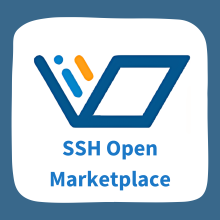
The SSH Open Marketplace is a discovery portal for resources such as tools, services, training materials, datasets, publications and workflows. The Marketplace pools and contextualises resources for Social Sciences and Humanities research communities, and highlights and showcases solutions and research practices for every step of the SSH research data life cycle.
The SSH Open Marketplace, developed as part of the SSHOC project, is maintained and will be further developed by CLARIN, DARIAH, and CESSDA, as well as their national partners.
DH Course Registry
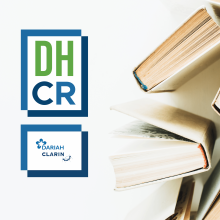
The Digital Humanities Course Registry (DHCR) is a collaboration between CLARIN and DARIAH. It provides up-to-date information of the DH teaching and training opportunities worldwide and helps students to find suitable programmes for their needs.
Collaboration with Individual Research Infrastructures
Research Infrastructures
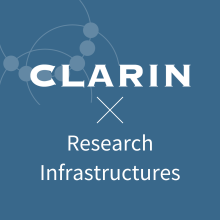
CLARIN maintains structural relationships with all Social and Cultural Innovation RIs, such as DARIAH, CESSDA and EHRI. Collaborations with other ESFRI RIs (such as SoBigData) are frequent, especially within the context of Horizon Europe projects. CLARIN collaborates especially closely with DARIAH, both at the national and the central level. As of September 2023, there were ten joint CLARIN-DARIAH national consortia, often under the name of CLARIAH.
E-Infrastructures
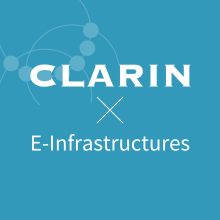
Other strategic alliances that help to shape CLARIN’s Open Science agenda are the membership of organisations such as DataCite, and , and collaboration with European initiatives in the sector, such as Europeana, LIBER, and TimeMachine. CLARIN also collaborates with global data infrastructures in the Research Data Alliance ( ), and this will be continued. The existing contacts with OpenAIRE, EGI, GEANT and EUDAT-CDI are carefully maintained, as they play a crucial complementary role in the emerging European Open Science policies.
Digital Infrastructures
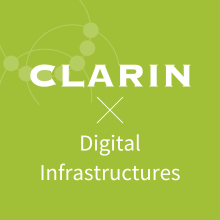
The European Commission supports the development of Common European Data Spaces in strategic economic sectors and domains of public interest in order to bring together relevant data infrastructures and governance frameworks to facilitate data pooling and sharing. CLARIN has been invited to join the Language Data Space (LDS). Through it, relevant stakeholders, for instance from the publishing, language technology or press industry, will be able to exchange and monetise their language data and other language resources (such as language models) through a single platform, taking EU values and compliance with EU rules fully into account. As a result, the LDS will significantly increase the much-needed availability of clean, high-quality, compliant language data to support the development of state-of-the-art language technologies (LT) and AI-based LT services for a range of businesses.
A European Digital Infrastructure Consortium (EDIC) is a new mechanism for multi-country projects, which allows member states to pool funding and other resources in a flexible and efficient way in order to invest in transformative digital projects. EDICs can also ensure common standards and interoperability. The ALT-EDIC, the Alliance for Language Technologies, was proposed in December 2023 as one of the first EDICs. The mission of the ALT-EDIC is to develop a common European infrastructure in Language Technologies, focusing particularly on Large Language Models (LLMs). It seeks to improve European competitiveness, increase the availability of European language data and uphold Europe’s linguistic diversity and cultural richness. Several of CLARIN’s national consortia are involved in the ALT-EDIC.
Read more
CLARIN ERIC, together with its national nodes, has been participating as partner in EU-funded projects that are relevant to its vision and mission. For an overview of active projects, see the EU Projects page.